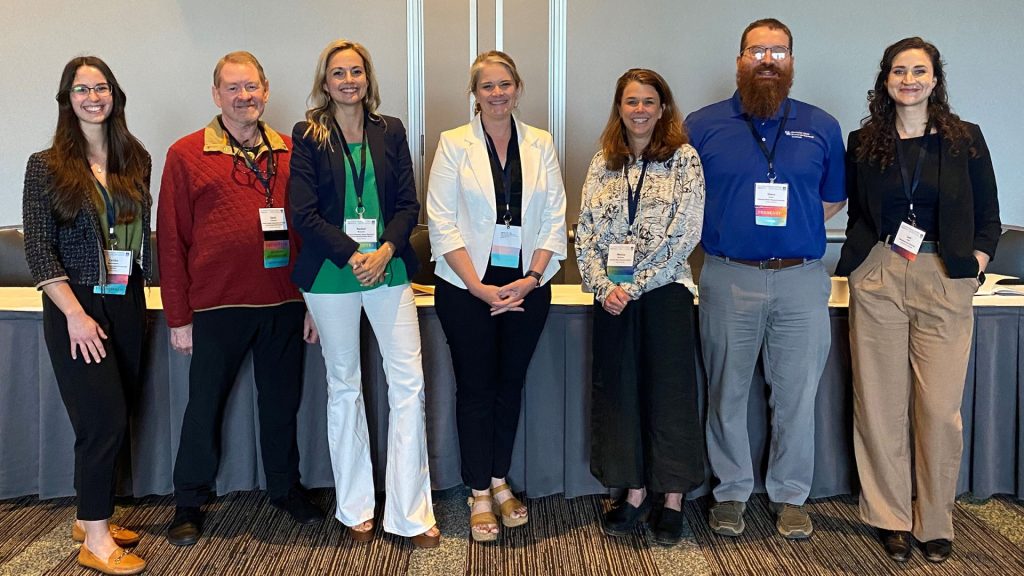
Citizen science, or community science, is a field that has seen noticeable expansion and growing relevancy in recent years. Water quality monitoring programs are some of the most established citizen science programs in the U.S., and each program is unique in how it is organized, taught, the utility of and the parameters collected, data entry and activation, and more. These programs educate residents and empower them with a language that links land use decisions, climate, water quality, and overall ecosystem health.
In April 2023, Rachel McGuire and Mona Dominguez represented the AU Water Resources Center and our community science, volunteer water monitoring program, Alabama Water Watch, at the 13th National Monitoring Conference (NMC) in Virginia Beach, VA.
In the southeastern United States, several statewide citizen science water quality monitoring programs already exist. Some are newly borne programs; others have existed for decades. These organizations share challenges that face all citizen science, volunteer-based organizations. They also share common regional water challenges that are related to climatic, socioeconomic, cultural, and political factors.
During the NMC, McGuire and Dominguez collaborated with several representatives of Southeastern volunteer water monitoring programs to facilitate the panel discussion, “Community Science in Southeast Waters: Exploring strengths and challenges to building better citizen science programming”

During the session, each program shared a brief overview of their organizational model and aspects that set their programs apart. They covered topics related to Trainer and Volunteer retention; monitoring parameters and use of laboratories, audience identification and messaging, data quality based on the EPA tiers of citizen science programming, training, and data storage integrity. They were transparent about the challenges facing their programs and what strategies they are implementing in response. The session was well-attended, and the discussion between audience members and panelists spurred meaningful conversations that continued throughout the conference. It emphasized the valuable role volunteer water quality monitoring programs play in addressing water challenges and in welcoming more participatory water resource management.
The NMC drew participants from federal agencies including USGS, EPA, and NOAA as well as state environmental management agencies, municipalities, industry, universities, and non-governmental organizations focused on water. Some of the most valuable sessions for AWW and the AUWRC were focused on connecting community scientists to decision makers, best practices for broadening participation in volunteer monitoring, engaging volunteers in the data interpretation process, and local, state, and regional uses of community data.

